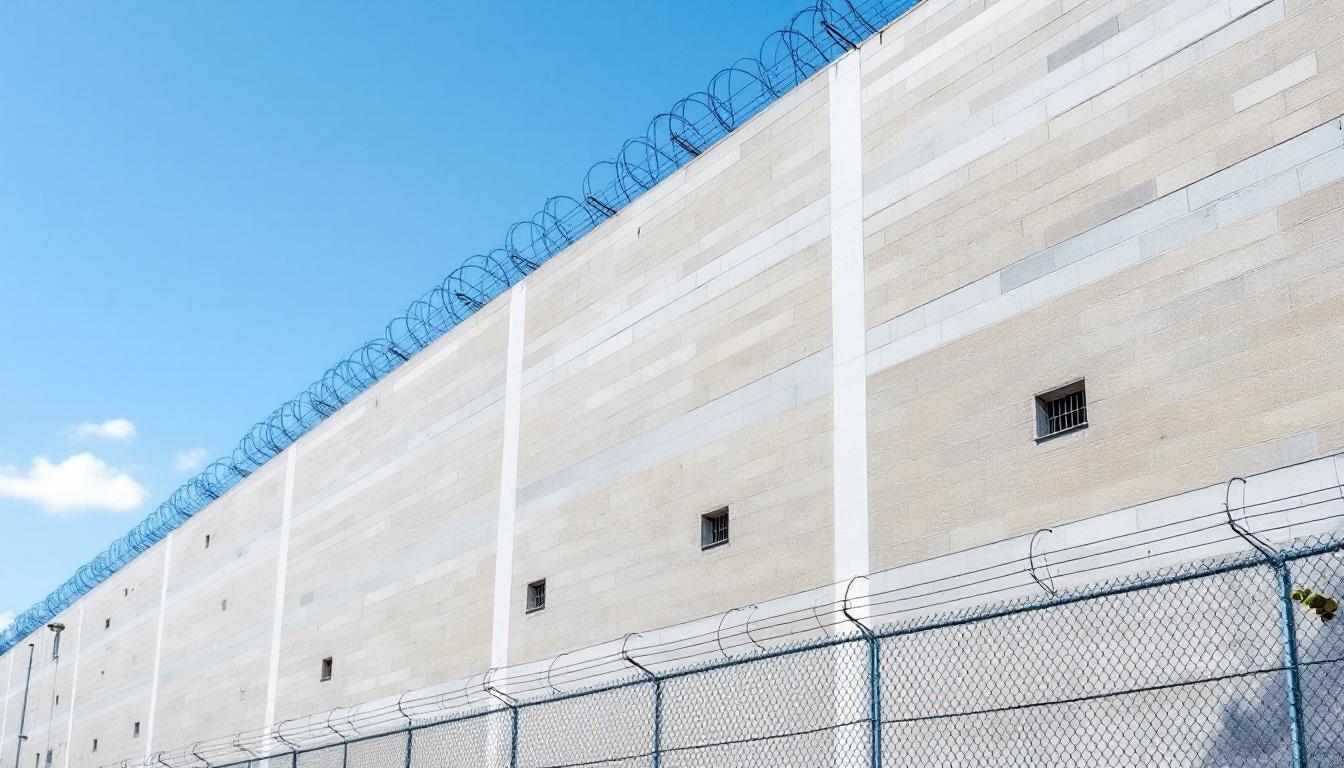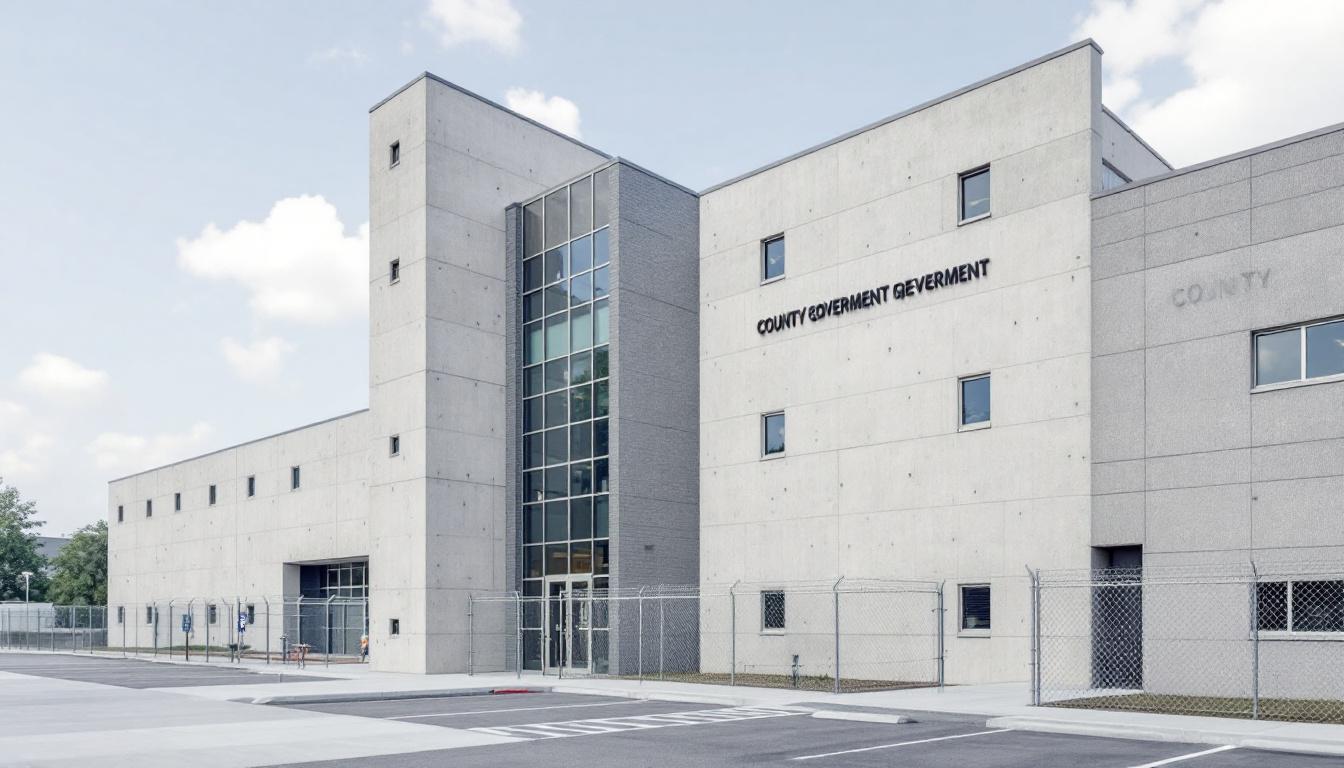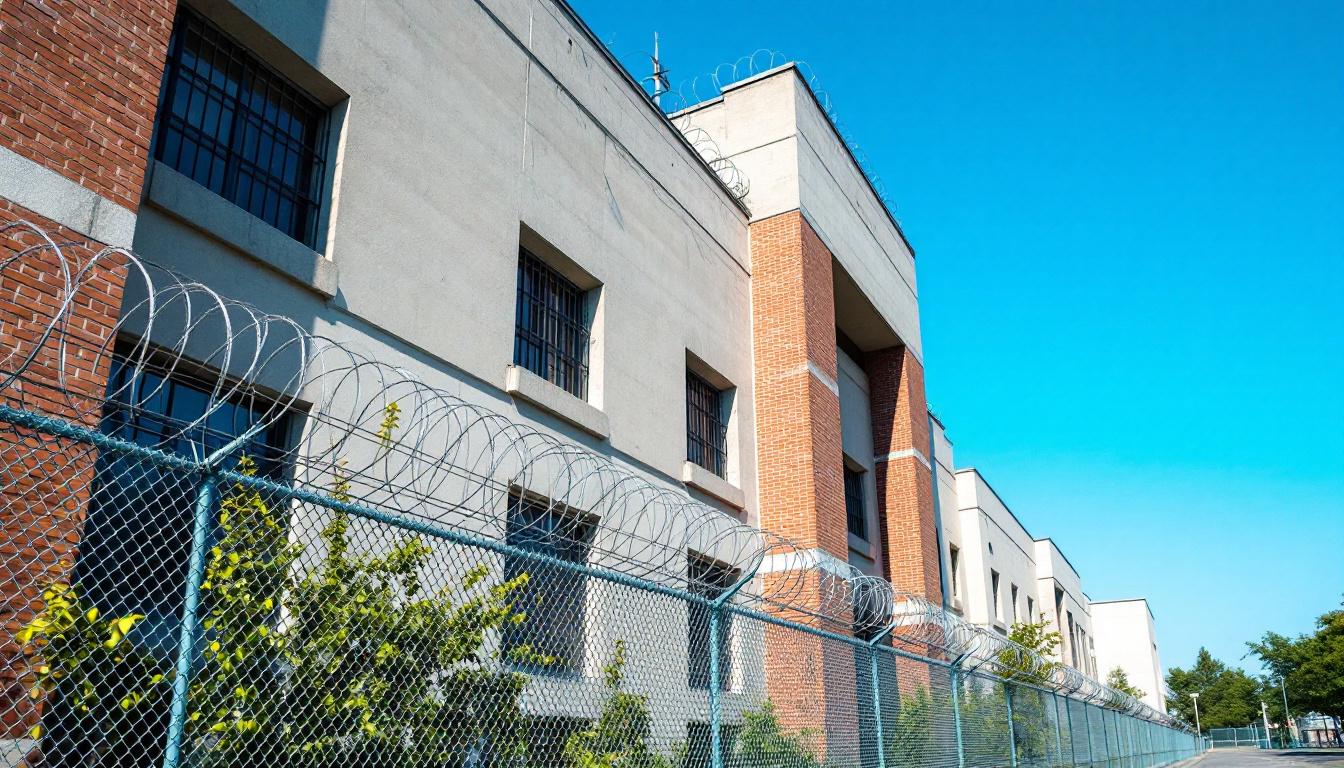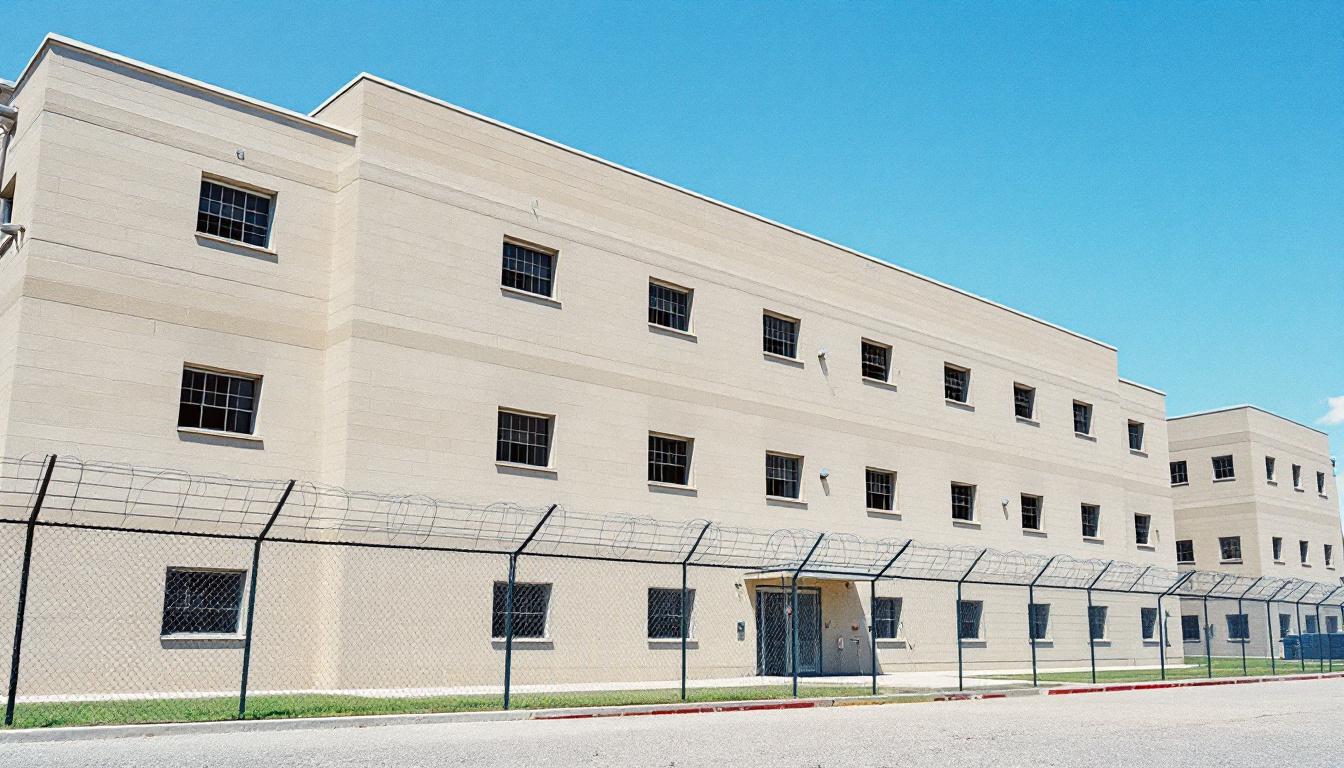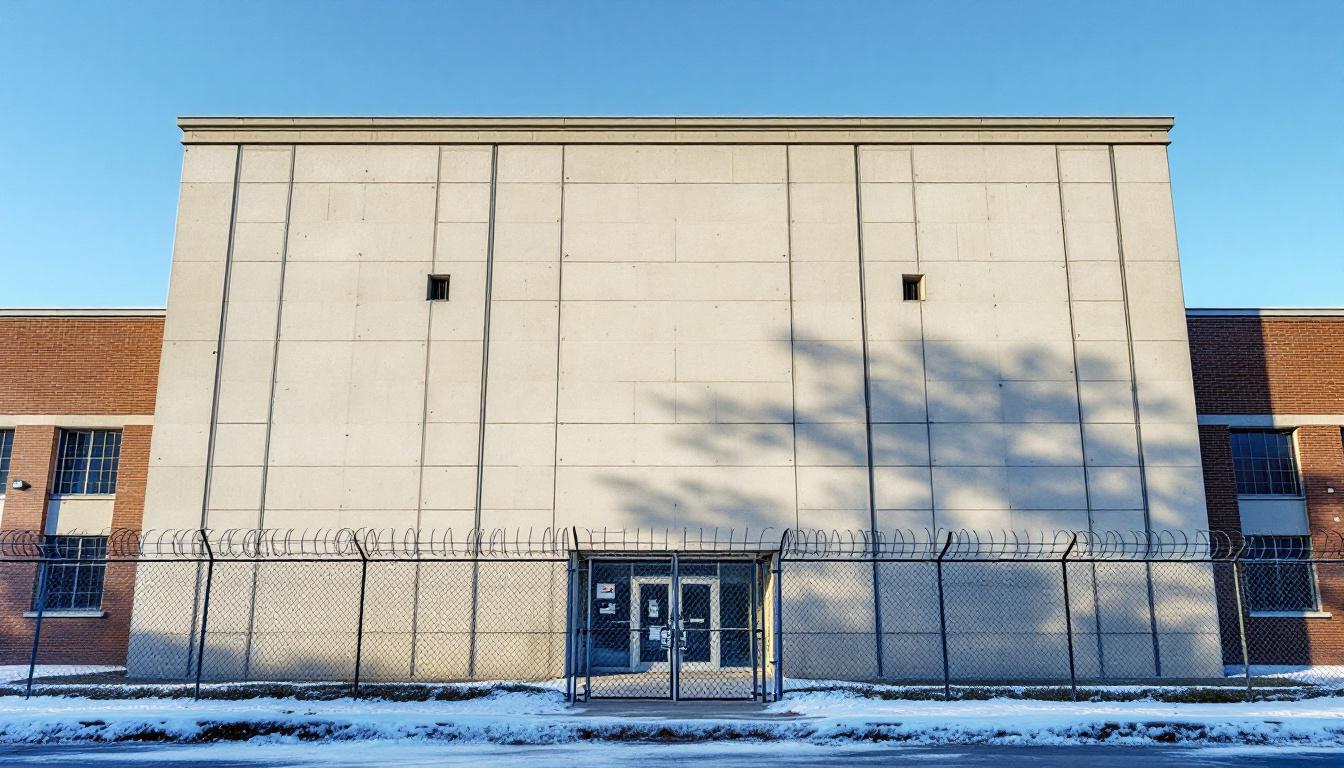
Quick Navigation
How to contact an inmate at Morris County Sheriff’s Office
This comprehensive guide will walk you through how to connect with an inmate at Morris County Sheriff’s Office. Follow the steps below to find an inmate and send letters and photos:
- Search for the inmate using our search tool below
- Create your account or log in to Penmate
- Write your message (up to 6,000 characters)
- Send instantly - inmates receive printed copies daily
Find an Inmate
Search for an inmate to start communicating today
Tip: You can search by first name, last name, or inmate ID number
To contact a person at Morris County Sheriff’s Office start by searching for the person on the official facility website. Perform a search by following these steps:
- Step 1: Enter their first name and last name into the search form and click "Search"
- Step 2: Locate their inmate record
- Step 3: Write down their Inmate ID and any housing information provided
Important! Be sure to enter the person's full name. Nicknames should not be used.
How to Send Messages to Inmates

You can use your phone or computer to send emails, letters, and photos to an inmate. Messages are sent electronically to inmate tablets or kiosks at the facility. If you would like to send a message, start by searching for an inmate at Morris County Sheriff’s Office.
Sending Photos and Postcards

A great way to send love and support to a loved one at Morris County Sheriff’s Office is to send photos and postcards. It only takes a few minutes to send photos from your phone and it makes a huge difference. You can also mail postcards with words of support and inspiration, or design your own postcard for special moments like birthdays and holidays.
Important! Be sure not to send any explicit photos or they may not be approved by the facility. You can also use a photo printing app like Penmate to make sure your photos are printed at the correct size (4x6 or 3x5) and are mailed according to the rules and regulations of Morris County Sheriff’s Office.
Frequently asked questions about Morris County Sheriff’s Office
-
How long does it take to deliver a message?
If you're sending an email message your letter is usually delivered within 24-48 hours. For messages sent via mail you should expect delivery within 3-7 days. All messages will need be approved by Morris County Sheriff’s Office.
-
How much does it cost to send a message to Morris County Sheriff’s Office?
You can send a message free using your phone or mail a message via USPS for the price of a $0.60 stamp and envelope. You can also purchase credits or e-stamps from services starting at $1.99.
-
What services can I use to contact an inmate at Morris County Sheriff’s Office?
Penmate
You can use Penmate to send letters and photos to an inmate from your phone. It's an easy way to stay in touch during your loved one's incarceration. Use the inmate locator to find an inmate's location and contact information, then you can send messages within a few minutes.
Securus messaging
Securus may be another option for communicating with an inmate at Morris County Sheriff’s Office. You can create a friends and family account and purchase credits to send messages. All messages will be reviewed and must be approved by the facility.
JPay
Some county jails and state prisons may support sending messages with JPay. You must register an account with the system, find your loved one, and purchase stamps to send messages. For some locations you can also attach photos.
Smart Jail Mail
You may also check if Smart Jail Mail is available at Morris County Sheriff’s Office. Smart Jail Mail is operated by Smart Communications and has contracted with some state and county jails. After purchasing credits, your messages and photos are sent to the facility, printed out, and then handed out to your loved one.
-
What is the mailing address of Morris County Sheriff’s Office?
Mailing address:
Morris County Sheriff’s Office
502 Union St
Daingerfield, TX 75638
Phone: (903) 645-2232 -
What are the visiting hours at Morris County Sheriff’s Office?
Visiting hours at Morris County Sheriff’s Office vary by housing unit and security level. Generally, visits are scheduled on weekends and holidays, with some facilities offering weekday visits. Contact the facility directly at (903) 645-2232 or check their website for the current visiting schedule. Visits typically last 30-60 minutes and must be scheduled in advance.
-
What items are prohibited when sending mail to Morris County Sheriff’s Office?
Prohibited items typically include: cash, personal checks, stamps, stickers, glitter, glue, tape, staples, paperclips, polaroid photos, musical or blank greeting cards, hardcover books, magazines with staples, and any items containing metal or electronics. Only send letters on plain white paper with blue or black ink. Photos must be printed on regular photo paper (no Polaroids). Always check with Morris County Sheriff’s Office for their specific mail policies.
-
How do I send money to an inmate at Morris County Sheriff’s Office?
You can send money to an inmate at Morris County Sheriff’s Office through several methods: 1) Online using JPay, Access Corrections, or the facility's approved vendor, 2) Money orders mailed directly to the facility with the inmate's name and ID number, 3) Kiosks located in the facility lobby, or 4) Over the phone using a credit or debit card. Fees vary by method, typically ranging from $2.95 to $11.95 per transaction.
-
Can I schedule a video visit with an inmate at Morris County Sheriff’s Office?
Many facilities now offer video visitation as an alternative to in-person visits. At Morris County Sheriff’s Office, video visits may be available through services like Penmate, Securus Video Connect, GTL, or ICSolutions. Video visits typically cost $10-20 for 20-30 minutes and must be scheduled in advance. You'll need a computer or smartphone with a camera and reliable internet connection. Contact the facility for their specific video visitation policies and approved vendors.
-
What identification do I need to visit an inmate at Morris County Sheriff’s Office?
All visitors must present valid government-issued photo identification such as a driver's license, state ID, passport, or military ID. Minors must be accompanied by a parent or legal guardian who can provide the minor's birth certificate. Some facilities require visitors to be on the inmate's approved visitation list, which may require a background check. Contact Morris County Sheriff’s Office for specific ID requirements and visitor approval procedures.
-
How can I find out an inmate's release date?
To find an inmate's release date at Morris County Sheriff’s Office, you can: 1) Use the online inmate search tool if available, 2) Call the facility's records department, 3) Contact the inmate's case manager or counselor, or 4) Have the inmate provide this information during a call or visit. For privacy reasons, some facilities only release this information to immediate family members.
Facility Overview
Contact Information
Morris County Sheriff’s Office502 Union St
Daingerfield, TX 75638
Phone: (903) 645-2232
Official Website

About Morris County Sheriff’s Office
Serving the correctional needs of Morris County within the broader framework of Texas's criminal justice system, the Morris County Jail, TX operates as a secure detention facility in Daingerfield, positioned in the northeastern region of the state. This TX correctional facility functions as an integral component of local law enforcement infrastructure, maintaining custody of individuals awaiting trial, serving sentences, or being held on various legal matters while supporting the state's broader correctional objectives through standardized operational protocols.
Located in Daingerfield, the facility typically maintains security classifications appropriate for a county-level institution, implementing procedures designed to ensure both public safety and the welfare of those in custody. The jail generally operates within established state guidelines for detention facilities, often coordinating with regional courts, law enforcement agencies, and correctional departments to facilitate the legal process. Those incarcerated services may include basic medical care, meal provision, and limited programming opportunities, though specific offerings can vary based on operational capacity and available resources.
The facility's role extends beyond simple detention, as county jails throughout Texas often serve as critical links in the state's correctional continuum. Morris County Jail typically processes individuals through various stages of the legal system while maintaining security protocols consistent with state standards. The institution may offer basic educational materials, religious services, and visitor programs, contributing to the state's broader goals of maintaining secure, humane detention conditions while supporting the judicial process in this East Texas community.
Programs & Services
Recognizing that incarceration presents a critical juncture for personal transformation, Morris County Jail emphasizes comprehensive development opportunities designed to address the multifaceted needs of those in custody. The facility's philosophy centers on providing structured pathways that enable individuals to acquire essential skills, address underlying challenges, and prepare for successful community reintegration. This approach acknowledges that meaningful change requires addressing not only immediate behavioral concerns but also the educational, vocational, and therapeutic foundations necessary for long-term stability.
Educational and vocational offerings typically form the cornerstone of the facility's development framework, providing those incarcerated with practical skills that may enhance their employment prospects upon release. Vocational training programs often include instruction in various trades and technical skills, allowing participants to develop marketable competencies within a secure, supervised environment. These structured learning opportunities are designed to build both technical proficiency and workplace readiness, emphasizing the importance of discipline, attention to detail, and professional conduct that extends beyond the immediate training context.
The facility may furnish comprehensive support services that address both therapeutic needs and practical reentry challenges. Dual diagnosis treatment programs typically focus on individuals managing co-occurring mental health and substance use disorders, providing specialized interventions within a secure setting. In addition to this therapeutic component, work programs often allow participants to develop employment skills while contributing to facility operations, fostering responsibility and work ethic. Faith-based initiatives may offer spiritual guidance and community support, while identification document assistance helps address practical barriers to reintegration. Veteran services often provide specialized support recognizing the unique challenges faced by those who have served in the military, ensuring that their particular needs receive appropriate attention within the broader framework of rehabilitation and preparation for community return.
Daily Life & Visitation

Social connections and family bonds remain central to the experience of those incarcerated at Morris County Jail, as the facility typically recognizes that maintaining these relationships often plays a crucial role in successful reintegration. At present, the daily routine actively revolves around structured schedules that begin with morning counts and meal service, followed by various programming opportunities and work assignments that may include kitchen duties, facility maintenance, or administrative tasks. Those incarcerated generally participate in organized activities that furnish both structure and opportunities for positive social interaction throughout the day.
In addition to this structured programming, living accommodations typically consist of dormitory-style housing units or individual cells, depending on classification levels and available space. The facility generally provides three meals daily in common dining areas, which often serve as important social gathering spaces where those incarcerated can maintain friendships and support networks. Recreation opportunities may include access to outdoor exercise areas, indoor common rooms with television viewing, and organized activities that encourage constructive interaction among residents.
Despite this institutional environment, the facility usually offers various means for those incarcerated to stay connected with their families and communities through scheduled visitation periods, telephone access, and correspondence privileges. Communication options typically include video visitation services and monitored phone calls, while commissary services generally allow residents to purchase personal items and snacks that can enhance their daily comfort. These connection points often provide essential emotional support and help maintain the family relationships that may prove vital during the incarceration period and beyond.
Ready to Connect?
Start communicating with your loved one today
Search for an Inmate
